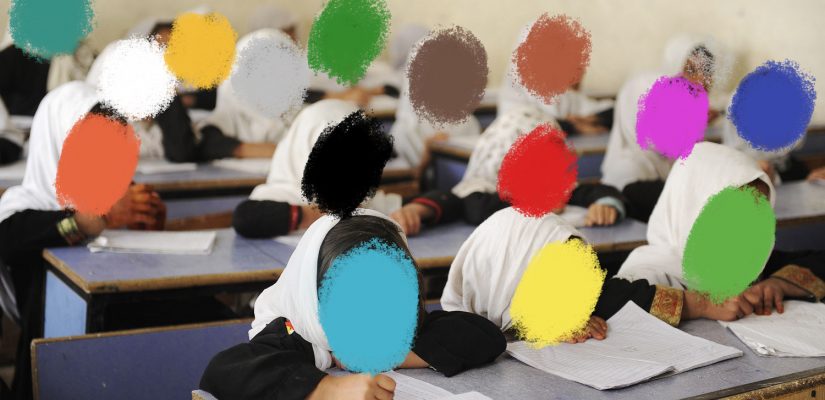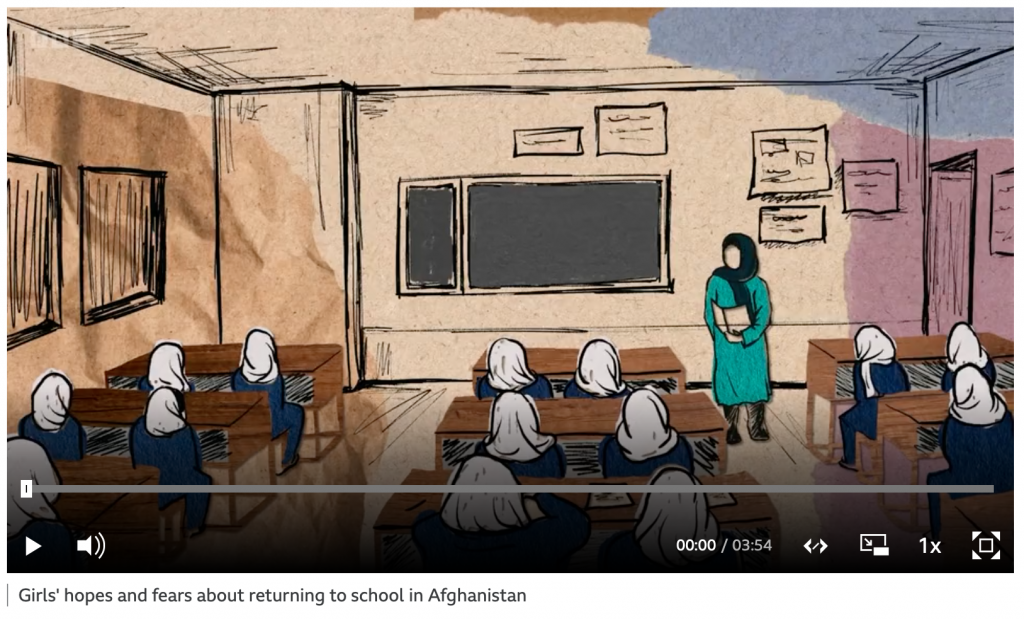
Afghan Girls still can’t go to School | (dot)gender

(dot)gender | A space by LORENA STELLA MARTINI
While the war ravages Ukraine, Afghanistan is dealing with the consequences of the Talibans’ rise to power, and Afghan girls are dramatically paying the highest price. After seizing the country back in August 2021, the Talibans shut down all schools; later on, male students and younger female children were allowed to return to school – although amid several difficulties – while the vast majority of secondary school girls has never made it back to the classroom.
The reopening of the gender segregated middle and high school for girls had finally been scheduled for March 23rd2022, yet the education ministry withdrew its previous declarations just some hours after classes had restarted, and girls were forced to abandon their schools and go home.

Girls’ hopes and fears about returning to school in Afghanistan (BBC)- A video realized before the decision to put off the reopening of secondary schools for girls in Afghanistan
The reason behind this change of policy apparently is the need to draft a school plan in accordance with Shari‘a law, Afghan culture and traditions; other sources also mention the need to solve an issue with girls’ uniforms before having them back to class. This reminds Afghans and the whole world of the previous Taliban regime, where girls were deprived of their right to education – and women more in general of their right to work – thus seriously jeopardizing their future and the overall future of the country. In this framework, there are also serious concerns over a rise in underage marriage due to the interruption of school activities and to the extreme poverty worsened by the combination of political instability, droughts and Covid pandemic – back in September 2021, the World Food Programme reported that 95% of Afghans do not have enough to eat – which are likely to push families to marry off their daughters.

Protests advocating for women’s most fundamental rights have been held – and met with repression and violence – throughout the last months. The reopening of all schools has been mentioned by international organisations and foreign governments as one of the main conditions to grant aids to Kabul. For this reason, and considering how badly Afghanistan needs foreign aid – according to the UNDP, 97% of the population risks falling below the poverty line by mid 2022 – the Ministry of Education’s move was unexpected and difficult to explain, especially just a few days before the High-level Pledging Event on Supporting the Humanitarian Response in Afghanistan, a pledging conference co-hosted by the UN, UK, Germany and Qatar at the end of March, aimed at raising funds to alleviate the humanitarian crisis in the country.
The urgent need and duty to grant access to education to girls of all ages is not something that can be questioned, and it is essential for the Taliban regime to quickly act accordingly. The right to education is one of the main pieces of the puzzle that should compose a decent human life. Something should be done to prevent a generation of Afghans to be deprived of the possibility to live it.